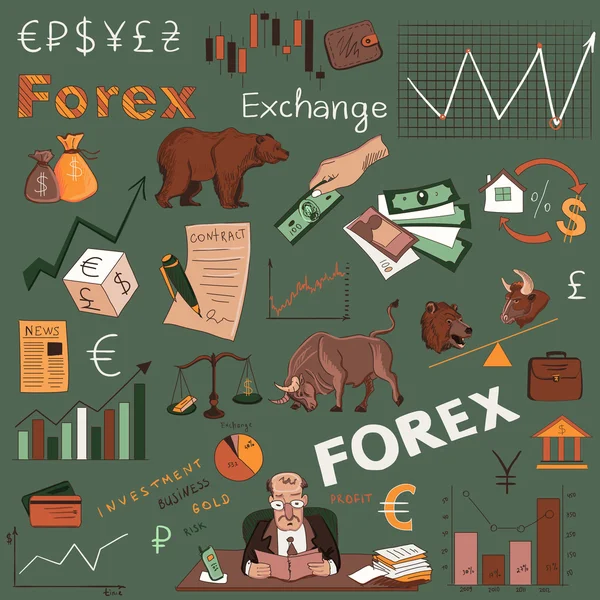Forex trading has gained popularity worldwide as an investment opportunity, allowing traders to speculate on currency pairs to make a profit. In Iran, the interest in Forex trading has been on the rise, despite certain regulatory restrictions. This article explores the ins and outs of Forex trading in Iran, including the challenges, opportunities, and essential factors that Iranian traders should keep in mind.
Overview of Forex Trading in Iran
Forex trading in Iran operates under unique circumstances due to economic sanctions and regulatory policies that differ from other countries. While Iranian citizens are restricted in terms of direct access to certain international brokers, a growing number of traders are engaging in Forex through online platforms and foreign brokerages.
Why Forex Trading Appeals to Iranians
- Hedging Against Inflation: The Iranian Rial has faced high inflation, making Forex a potential way for Iranians to preserve and even grow their wealth.
- Access to Global Markets: Forex trading allows Iranians to diversify their portfolios by investing in foreign currencies.
- Potential for High Returns: Due to the leverage offered by Forex brokers, traders can control large positions with relatively small investments, increasing the potential for high returns.
Regulatory Environment for Forex in Iran
The Iranian government has imposed various controls on currency trading to manage foreign exchange reserves and stabilize the Rial. Due to economic sanctions, Iranian traders often face restrictions from international Forex brokers, and some may even avoid Iranian clients to reduce regulatory risks. As a result, local Forex trading activities often operate in a gray area, with traders using international platforms that don’t explicitly support Iranian residents.

Regulatory Challenges for Iranian Traders:
- Limited Broker Access: Some major Forex brokers restrict or prohibit accounts from Iranian traders due to international sanctions.
- Currency Restrictions: Government regulations limit access to foreign currencies, impacting how Iranian traders fund their accounts.
- Potential Risks with Unregulated Brokers: Traders may rely on unregulated brokers that accept Iranian clients, which can increase the risk of fraud.
Key Considerations for Forex Trading in Iran
1. Selecting a Forex Broker
Choosing the right broker is essential for successful Forex trading. Due to restrictions, Iranian traders should carefully research brokers, focusing on those that allow Iranian accounts, offer robust security, and provide reliable support.
Things to Consider:
- Regulatory status of the broker.
- Account funding and withdrawal options that support Iran.
- Reliable customer service in Farsi or English.
- Leverage limits that match your risk tolerance.
2. Using VPN for Secure Access
Many Iranian traders use a Virtual Private Network (VPN) to access Forex trading platforms securely. A VPN allows users to mask their IP address, providing them with greater security and anonymity. However, it’s important to note that using VPNs may violate the terms and conditions of some brokers, so exercise caution.
3. Risk Management
Forex trading is inherently risky, and this is amplified by the high leverage levels often used in the market. Iranian traders, especially beginners, should adopt sound risk management practices, including setting stop-loss orders and not investing more than they can afford to lose.
Risk Management Tips:
- Set a stop-loss for every trade.
- Use low leverage to avoid significant losses.
- Diversify investments rather than focusing solely on one currency pair.
Comparative Table: Forex Trading Considerations in Iran vs. Other Countries
| Factor | Iran | Other Countries |
|---|---|---|
| Broker Access | Limited, some brokers restrict Iranian clients | Broad access to various regulated brokers |
| Regulation | Sanctions and currency restrictions | Standard regulations without heavy restrictions |
| Funding Options | Limited due to international sanctions | Multiple, including bank transfers, e-wallets |
| Use of VPN | Common among traders | Typically not required |
| Leverage | Varies by broker, often high | Regulated limits depending on country |
| Language Support | Limited Farsi support | Wide range of language support available |
Steps to Start Forex Trading in Iran
Step 1: Choose a Reputable Broker
Identify a broker that accepts Iranian clients and offers secure and reliable trading conditions. Ensure the broker has a good reputation and check reviews from other Iranian traders.
Step 2: Set Up a Trading Account with a VPN
Use a VPN to enhance security when accessing your trading platform. However, always check the broker’s policies regarding VPN use.
Step 3: Understand and Practice with a Demo Account
Before investing real money, use a demo account to practice trading. A demo account lets you gain experience with virtual funds, testing your strategies without financial risk.
Step 4: Develop a Trading Strategy
Based on your risk tolerance and goals, create a strategy that outlines how and when you’ll trade. Popular strategies include trend following, scalping, and swing trading.
Step 5: Start Trading with Caution
When you’re ready to start trading live, begin with a small investment. Focus on learning the market, managing your trades, and refining your strategy over time.
FAQ
1. Is Forex trading legal in Iran?
Forex trading isn’t explicitly illegal, but it is regulated, and some brokers don’t accept Iranian clients due to sanctions. Many traders use international platforms through VPNs.
2. Do Iranian Forex traders face additional challenges?
Yes, challenges include limited broker options, currency restrictions, and potential reliance on VPNs to access platforms securely.
3. What is the best way for Iranians to fund their Forex accounts?
Funding options are limited, but some brokers offer cryptocurrency or e-wallet options that are more accessible to Iranians.
4. How can Iranian traders protect themselves from fraud?
Only work with reputable brokers, ideally those with good reviews and verified security measures. Avoid unregulated brokers and be cautious of any promises of guaranteed returns.
5. Can Iranians trade Forex without a VPN?
While some brokers allow direct access, a VPN may be needed for secure access due to local restrictions. However, traders should be aware of the broker’s policy on VPN use.
6. What is the typical leverage offered to Iranian traders?
Leverage varies by broker, but some unregulated brokers may offer high leverage options, which can increase both profit and risk.
7. Is there Farsi language support in Forex trading?
A few brokers provide Farsi language support, but it is generally limited. English-language support is more common.
8. How does Forex trading impact the value of the Iranian Rial?
Forex trading does not directly affect the Rial, but trading foreign currencies may help Iranians hedge against the Rial’s inflation.
9. What is the risk of using unregulated brokers?
Unregulated brokers may lack investor protections, and there’s an increased risk of fraud. Always research a broker’s credibility before opening an account.
10. What trading strategies are recommended for beginners?
Trend following, scalping, and swing trading are popular strategies for beginners, but it’s essential to practice with a demo account first.
Forex trading in Iran presents unique challenges and opportunities. By choosing reliable brokers, managing risks, and maintaining a strong understanding of the market, Iranian traders can participate in Forex while navigating regulatory complexities. Remember to always conduct thorough research and consult with local experts to optimize your Forex trading experience.






This article is just filled with a lot of unnecessary fluff! How can anyone really trust these brokers when there are so many restrictions? It’s like gambling your money away with no real guarantee. And let’s be honest, using a VPN to trade sounds risky too. Why not just keep it simple and invest in something safer? Seriously, think before you jump in!
‘Potential for high returns’? Sounds more like wishful thinking if you ask me!
Hedging against inflation? Seriously? That’s a big gamble! People should think twice before jumping in.
Using VPNs to trade is just asking for trouble. What if your broker finds out?
‘Research brokers’? Most of them won’t even take Iranian clients! This article misses the mark.
‘Diversifying investments’? You can’t diversify if you can’t even access the markets properly!
Why would anyone trust unregulated brokers? Sounds like a recipe for disaster to me!
I don’t get how people think they can make money with so many restrictions. It’s practically impossible!
The risks are way too high! How can you say it’s a good investment opportunity? This doesn’t make sense.
‘Secure access’? If it’s so secure, why do they need VPNs? Seems sketchy to me.
This article is just full of fluff. Forex trading is too risky for Iranians, especially with all these sanctions!